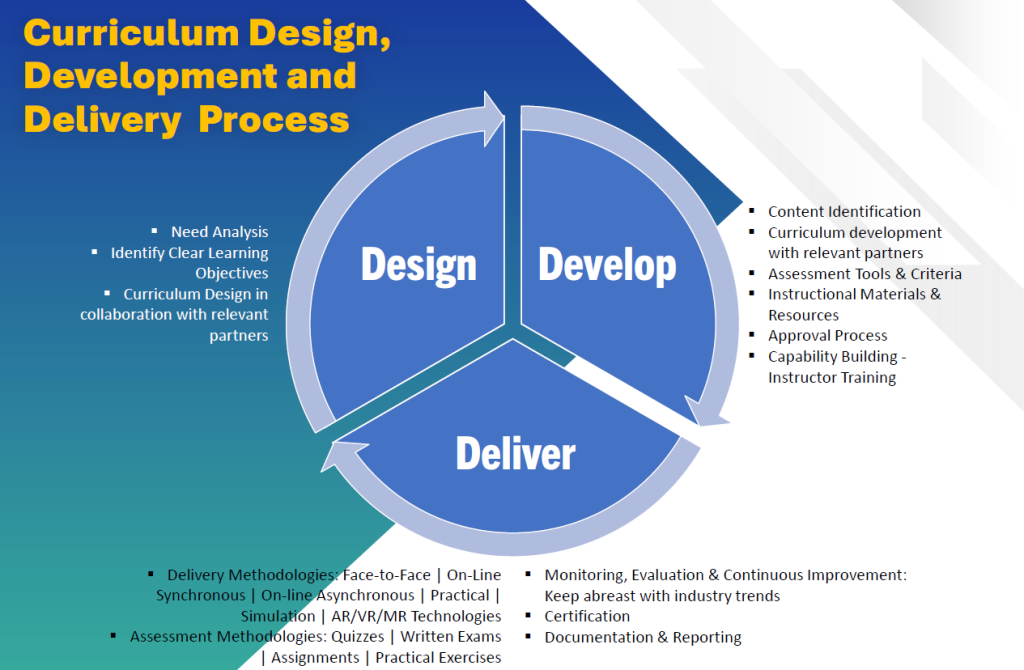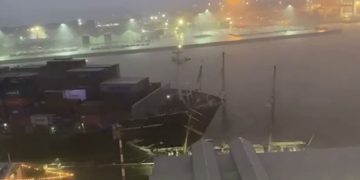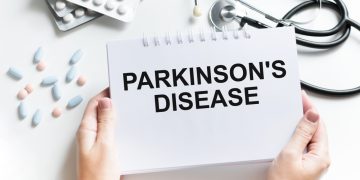During the 2024 GREEN4SEA Singapore Forum, Capt. Mohd Salleh, Specialist (Navigation & Shiphandling) & Special Projects, Singapore Maritime Academy (SMA), provided a comprehensive understanding of the evolving landscape of alternative fuels expected to significantly impact the maritime industry.
As new fuels emerge on the horizon, it becomes imperative for the maritime industry to equip itself with the necessary knowledge and skills to navigate these uncharted waters safely and efficiently. Recognizing this critical need, efforts have been undertaken to develop comprehensive training programs tailored to address the challenges and opportunities presented by these emerging fuels.
At the forefront of this endeavor is the Singapore Maritime Academy (SMA), which has collaborated with key partners, notably the Maritime and Port Authority of Singapore (MPA), to pioneer a curriculum aimed at bridging the gap between industry demands and educational offerings.
The importance of training in the maritime industry
Within the dynamic ecosystem of the maritime industry, training is of paramount importance for several reasons. Firstly, safety is non-negotiable at sea. The adoption of new fuels introduces inherent risks. Training empowers stakeholders to identify, assess, and mitigate these risks effectively, ensuring safe and secure operations.
Key facts that highlight the importance of training
- New ship fuels are vital for the maritime industry’s sustainability and competitiveness.
- Professionals must understand the different types, benefits, and challenges associated with these fuels.
- Curriculum development is essential to equipping maritime experts with the necessary skills and knowledge.
- Embracing change, staying updated, and contributing to a greener maritime future.
Regulatory compliance is also crucial, as the regulatory landscape governing maritime operations is constantly evolving. Training ensures compliance with emerging regulations, thereby fostering a culture of adherence and accountability.
Furthermore, mastery of new fuels requires a deep understanding of their properties and operational nuances. Training also enhances efficiency and performance, enabling seamless integration of these fuels into existing maritime practices.
Exploring emerging alternative fuels
The maritime industry is on the cusp of a paradigm shift, with emerging fuels offering promising alternatives to traditional marine fuels. Methanol, ammonia, LNG, and even nuclear energy have emerged as potential contenders in the quest for cleaner, more sustainable propulsion systems.
While the focus has primarily been on ammonia and methanol (SMA has launched one of the first training courses focused on handling methanol as fuel for ships), discussions and developments in curriculum design extend to encompass a broader spectrum of alternative fuels.
New ship fuels are crucial for promoting environmental sustainability in the maritime industry. These fuels serve as more environmentally friendly alternatives to traditional marine fuels, significantly reducing greenhouse gas emissions.
Additionally, they offer higher energy efficiency and cleaner combustion characteristics, leading to improved fuel economy and reduced operational costs. By adopting these new fuels, the maritime industry can play a significant role in mitigating environmental impacts and addressing climate change.
Regulatory compliance is another key aspect driving the adoption of new ship fuels. Stringent environmental regulations require ship owners and operators to meet specific emissions standards. Utilizing cleaner fuels helps these stakeholders adhere to regulatory requirements, avoiding potential fines and sanctions. Compliance with these regulations not only ensures smoother operations but also enhances the industry’s reputation and commitment to environmental stewardship.
Furthermore, energy efficiency is a critical benefit of new ship fuels. These fuels provide higher energy efficiency and cleaner combustion characteristics, resulting in improved fuel economy and lower operational costs. The enhanced efficiency of these fuels not only reduces expenses for ship operators but also contributes to the overall sustainability of maritime operations.
Additionally, the switch to new ship fuels necessitates technological advancement. The development of advanced propulsion systems, engine technologies, and fuel delivery systems is essential to accommodating these innovative fuels. This transition encourages innovation within the maritime sector, creating opportunities for research and development. It fosters collaboration between academia and industry, driving technological progress and the adoption of cutting-edge solutions.
Finally, the adoption of new ship fuels significantly improves energy security and diversification. Embracing a variety of fuel sources reduces dependence on a single type of fuel, thereby enhancing energy security and resilience.
This diversification is particularly important in times of supply disruptions, ensuring the continuous operation of maritime activities. By promoting energy diversification, the maritime sector can better navigate supply challenges and contribute to a more robust and secure energy landscape.
Overall, stakeholders bear a collective responsibility to minimize environmental impact. Training also fosters awareness and proficiency in environmentally sustainable practices, helping the crew make more informed decisions.
The three-dimensional approach
The journey of designing, developing, and delivering a comprehensive curriculum for the maritime industry mirrors a 3D experience, not in the cinematic sense, but in the realms of Design, Development, and Delivery (DDD) of the Comprehensive Education System (CES). This approach is typical in maritime education and training, where crafting a course entails meticulous attention to these three phases.
In the Design phase, a thorough needs analysis is conducted, laying the groundwork for clear learning objectives. Collaboration with industry partners, in particular the Maritime Authority of Singapore (MPA), fosters a collaborative curriculum design environment. Ideas are exchanged, and the curriculum takes shape, aligning with industry standards and requirements.
Moving into the Development phase, content requirements are identified, drawing upon frameworks such as the International Code of Safety for Ships Using Gases or Other Low-Flashpoint Fuels (IGF Code) as a foundation. Expansion beyond these frameworks is essential to address the specific needs of the new curriculum. Assessment tools, instructional materials, and resource identification are integral components, albeit challenging due to the novelty of the subject matter. An approval process then follows to validate the curriculum’s readiness for implementation.
Delivery, the final phase, is a crucial aspect of CES. An Operation and Technology Roadmap (OTR) serves as a guiding framework, aimed at empowering staff and students with the expertise and knowledge required for active involvement in the adoption of new fuels. Through a comprehensive workshop conducted in September–October 2023, the roadmap took shape, with a focus on methanol as the primary fuel source.

Collaboration remains paramount throughout this process, with SMA partnering not only with MPA but also with other educational institutions and training partners. The involvement of academics, alongside collaboration with maritime centers, enriches the curriculum design process, ensuring its relevance and efficacy.
Curriculum design, development, and delivery
Central to SMA’s mission is the development of a robust and relevant curriculum that caters to the evolving needs of the maritime industry. The curriculum encompasses a comprehensive range of topics, including but not limited to the fundamentals of emerging fuels, safety protocols and best practices, regulatory frameworks and compliance, operational efficiency and performance optimization, environmental sustainability and stewardship, as well as risk assessment and management strategies.
SMA’s curriculum development process is characterized by collaboration and consultation with industry stakeholders, ensuring alignment with industry standards and best practices. Objectives of the curriculum include:
#1 Understanding alternative fuels
The training curriculum covers various aspects of alternative fuels, including types, properties, storage, handling, safety measures, and environmental benefits. Additionally, participants learn about technologies supporting the adoption of alternative maritime fuels.
#2 Building technical expertise
Participants build technical expertise by staying abreast of the latest regulations pertaining to alternative fuels and understanding their practical implications. They are trained in compliance procedures, reporting requirements, and the implementation of best practices. Moreover, they gain insights into carbon footprint calculations, emissions monitoring, and the environmental impact of alternative fuels.
#3 Ensuring regulatory compliance
Regulatory compliance is a focal point of the curriculum, ensuring participants remain updated on relevant regulations and equipped with the knowledge to adhere to them. They receive training in compliance procedures, reporting requirements, and the implementation of best practices.
#4 Emphasizing safety and risk management
Safety and risk management are emphasized, with a focus on conducting risk assessments, implementing emergency response procedures, and ensuring the safe handling and storage of alternative fuels to mitigate potential hazards. Participants also become familiar with the specific safety features and protocols associated with each fuel type.
#5 Focusing on environmental sustainability
Environmental sustainability is also a key component, with participants learning about carbon footprint calculations, emissions monitoring techniques, and the broader impact of alternative fuels on air and water quality.
#6 Fostering research and innovation
The curriculum fosters research and innovation skills, enabling participants to design, develop, and deliver effective training programs. Collaboration with research institutions and industry partners is encouraged to facilitate the integration of emerging technologies related to alternative fuels and bridge the gap between academia and practical applications. Furthermore, SMA actively participates in international forums and working groups, contributing to the development of global standards and guidelines for the adoption of alternative fuels.
Sailing to an alternative future
In conclusion, the journey of designing, developing, and delivering a comprehensive curriculum for emerging marine fuels epitomizes a collaborative and multifaceted endeavor.
Through strategic partnerships, meticulous planning, and a commitment to excellence, SMA is poised to lead the maritime industry into a new era of sustainability and innovation.
Above article has been edited from Capt. Yves Mohd Salleh’s presentation during the 2024 GREEN4SEA Singapore Forum with minor edits for clarification purposes.
Explore more by watching his video presentation here below
The views presented are only those of the author and do not necessarily reflect those of SAFETY4SEA and are for information sharing and discussion purposes only.































































